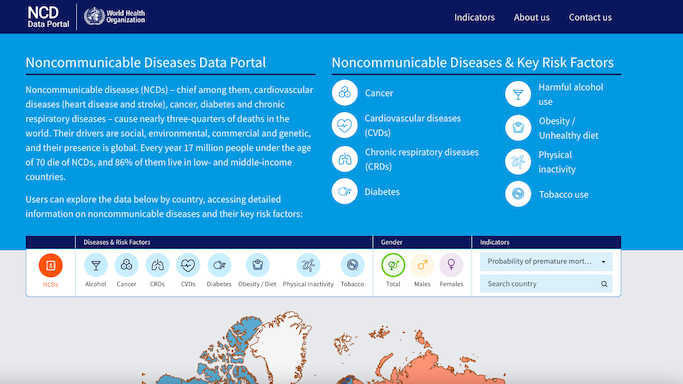The Global Health Observatory
Explore a world of health data
Noncommunicable diseases (NCDs), such as heart disease, stroke, cancer, chronic respiratory diseases and diabetes, are the leading cause of mortality in the world. This invisible epidemic is an under-appreciated cause of poverty and hinders the economic development of many countries. The burden is growing - the number of people, families and communities afflicted is increasing. Common, modifiable risk factors underlie the major NCDs. They include tobacco, harmful use of alcohol, unhealthy diet, insufficient physical activity, overweight/obesity, raised blood pressure, raised blood sugar and raised cholesterol. The NCD threat can be overcome using existing knowledge. The solutions are highly cost-effective. Comprehensive and integrated action at country level, led by governments, is the means to achieve success.
Key figures
More NCD data products

